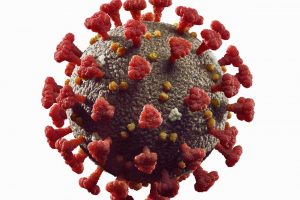Cases of new Yorkshire Covid variant double as 'concerning mix of 25 mutations' probed

A NEW Covid variant that emerged in Yorkshire shows how rapidly the virus is evolving to evade vaccines, experts have warned.
Named AV.1, there have been only 49 cases of the strain confirmed so far.
? Read our coronavirus live blog for the latest updates
But this figure, to May 12, appears to have doubled to 99, according to data from the COVID-19 Genomics UK Consortium.
A new scientific paper reveals the characteristics of the variant for the first time using swabs from people in Sheffield – where cases are centred.
Researchers led by University of Sheffield said the Yorkshire variant has “several” mutations that are already seen in concerning variants from South Africa, Brazil and India.
“Some of these are associated with immune escape and with increased transmissibility”, Prof Lawrence Young, a virologist and professor of molecular oncology at the University of Warwick, said.
He told the Sun: “The more we look, the more variants we will find as long as the virus continues to spread.
“The good news is that vaccines work against all the variants albeit with reduced efficiency in some cases.
“This all shows that we are not out of the woods and test and trace is more important than ever.”
The variant has 25 mutations all together, data from PHE shows, with 10 on the most important part of the virus – the spike protein.
Scientists in Sheffield concluded the variant be “monitored closely for possible increased transmission” and for research to look at the impact on vaccines.
Simon Clarke, an associate professor in cellular microbiology, University of Reading, said the combination of mutation suggests the Yorkshire strain “has some sort of advantage”.
“However, the effects of most of them remain completely unknown,” he said.
“The fact that the virus can change the structure of its spike protein quite so much does indicate that there may be plenty more scope for variation resulting in yet more versions of the virus which could cause us real problems.”
Paul Hunter, professor of medicine, University of East Anglia, said the Yorkshire variant had a lot of mutations.
He warned “the more mutations [a variant has], potentially the more resistant to vaccine or the more infectious”.
“But it is not that simple”, he added, saying sometimes mutations have no importance at all.
On whether the Yorkshire variant will become problematic, Prof Hunter said it could “rapidly increase in numbers, become the dominant variant and push up hospitalisations”.
Or it could simply “fade away” like a number of other variants – such as those that cropped up in Bristol and Liverpool.
Prof Hunter told The Sun: “I am quite confident it will fall somewhere between these two extremes but just where is beyond my predictive ability at present.”
He said Sars-Cov-2 is evolving at a rapid speed because there are still high numbers of cases across the world.
Which mutations does the Yorkshire variant have?
E484K: immunity dodging mutation found in the strains from South Africa and Brazil.
G142D: found in all three Indian strains, this mutation "may reduce" antibody response.
144: a mutation found in the Kent strain as well as two others that evolved in England. It has shown signs of reducing antibody recognition.
T95I: a mutation of unknown importance found in the super-infectious Indian strain.
P681H: thought to give the Kent variant some of it’s fast-spreading abilities.
New variants have evolved in the UK, Brazil and India at times when the virus was infecting thousands of people a day.
Prof Hunter said: “We know from work on other human coronaviruses that these viruses can accumulate mutations that gradually make the virus more and more resistant to prior immunity.
“For these other human coronaviruses this usually takes several years with full immune escape taking between 7 and 20 years.
“The thing with COVID is that because there is so much of it around this is happening so much quicker.”
“Don’t panic”
Greg Fell, director of public health in Sheffield, stressed there is no evidence to suggest it spreads faster or that vaccines do not work against it.
He told people in the Yorkshire region “please don’t be alarmed” about the variant.
But on Sunday, Dr Jenny Harries, the chief executive of the UK Health Security Agency, told BBC's Andrew Marr Show: "It is a variant under investigation – that means it has been spotted to have particular mutations that can be associated with adverse outcomes.
"So it might be more susceptible to being more transmissible or counter some of the immune response that we would normally produce."
Public Health England said there is "currently no evidence that this variant causes more severe disease or renders the vaccines currently deployed any less effective".
A Downing Street spokesman said it is monitoring the emergence of AV.1.
Asked whether the discovery of the new variant would have an impact on the next stage of restrictions lifting on June 21, the spokesman said the five-week gap between measures relaxing would allow the variant to be monitored.
He added: “As the Prime Minister has said, we will continue to look at all the statistical evidence and data, and we’ll set out our plans as soon as the data allows.”
The same guidance to continue to wash your hands regularly and wear a mask indoors applies to protect against the variant.
Source: Read Full Article



